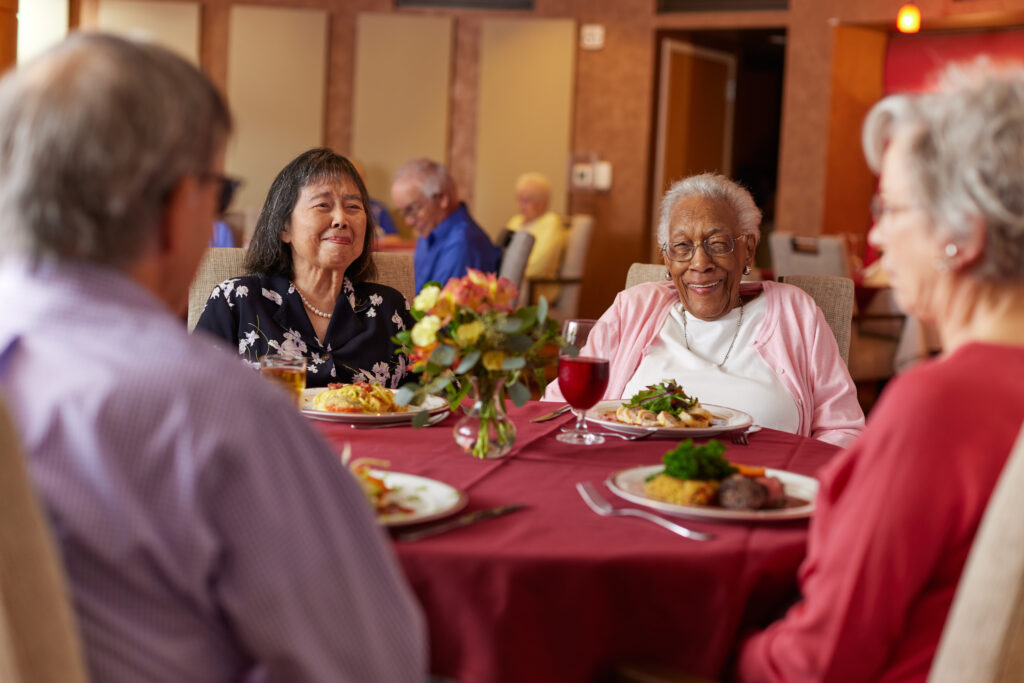
Sleep quality is prone to get worse with age, but the fix might be easier than you’d expect. Studies show that staying socially active can improve your sleep patterns and rest quality.
Residents of a senior living in Palo Alto, CA, should know about this vital link between social activity and better sleep. Life in assisted living communities gives you plenty of chances to build meaningful connections that naturally help you sleep better.
This article looks at the science behind how social bonds affect sleep quality and shows how community living helps improve your rest through both body and mind. You’ll find that picking a place with plenty of social opportunities could be exactly what you need to get that refreshing sleep you’ve been missing.
The Science Behind Social Interaction and Sleep
The biological link between social interaction and sleep explains why people living in communities often sleep better. There are fascinating connections between your social relationships and sleep patterns. This explains why residents in senior living communities report better sleep.
How Social Connection Affects Sleep Hormones
Social interactions directly shape the hormones that control your sleep. Your body’s internal clock, the circadian system, responds well to positive social connections and controls when you sleep and wake up. Social activities affect your sleep hormones in several ways:
- Better melatonin production helps you sleep on time
- Higher serotonin levels regulate your mood
- Your cortisol levels stay balanced throughout the day
Stress Reduction Through Social Support
Good social connections naturally protect you against stress that disrupts sleep. People with reliable support systems sleep better, while those lacking social support often have trouble sleeping. Your body responds to a supportive community by producing fewer stress hormones that usually interfere with rest.
It is easy then to deduce that positive social interactions can relate directly to better sleep quality. Likewise, people who have negative or limited social contact can often struggle to sleep well. Senior living communities can help support better sleep for residents through regular, meaningful activities with peers and staff.
Circadian Rhythm Regulation in Community Settings
Community living can create an environment that helps maintain healthy sleep patterns. Age affects your circadian system and can lead to interrupted sleep and require more daytime naps. The structured social environment in senior communities helps counter these effects.
Palo Alto’s assisted living communities combine social engagement with proper lighting to create remarkable benefits. Bright light exposure during social activities helps maintain natural circadian rhythms. Communities that use dynamic lighting systems along with regular social interactions can improve how well residents sleep compared to not having thoughtfully designed lighting systems and programs that promote positive social interactions.
Your body’s internal clock responds well to daily routines in senior living environments. These regular patterns, combined with social interaction, strengthen your circadian rhythm. This affects not just your sleep but also energy levels, mood and overall health. Assisted living communities provide an ideal mix of structure and social interaction to maintain these healthy patterns.
Mental Health Benefits of Social Engagement
Social engagement does more than just help you sleep better. Senior living communities frequently prove how regular interactions with others can powerfully affect mental well-being for residents. Many adult children of residents notice a positive difference in their parents after they have moved to a senior living community.
Reducing Anxiety and Depression
Social isolation can create serious health risks and increase chances of depression and anxiety. According to the National Institutes of Health, social isolation is linked to an increased mortality risk. Living in a community setting can help to combat these risks by creating more opportunities for connection. The positive impacts can be compounded when social interactions are positive and meaningful.
Building Emotional Security
A supportive community strengthens your emotional security. People who participate in meaningful activities with others feel more purposeful and tend to live longer. Senior living communities offer practical advantages:
Enhanced Cognitive Function
Social engagement’s effect on cognitive health stands out as remarkable. Your brain benefits from staying connected with others. Research shows these connections help protect against cognitive decline and can delay dementia onset.
Social engagement measured through family contact, friendships and group activities reduces cognitive decline risk over 3, 6 and 12-year periods. Your brain gets protection through several ways:
- Active social networks build neural pathways and cognitive reserve
- Social activities outside family circles create larger positive effects on cognitive function
- Living in connected neighborhoods promotes activities that benefit brain function
This proves that social engagement matters more than just passing time – it maintains and improves your cognitive abilities. Adults with bigger social networks and more social activities show better cognitive performance. These improvements show up in immediate recall, delayed recall, verbal fluency and processing speed.

More Than a Place to Stay
Your sleep quality, mental health and cognitive function depend heavily on social connections as you age. Research shows that supportive community living can boost sleep patterns through stress reduction and proper circadian rhythm maintenance.
Our community goes beyond providing just a place to stay. Webster House creates an environment that can boost your overall sense of well-being through meaningful social interactions. Your cognitive functions are regularly engaged, anxiety and depression can decrease and you could gain the emotional security needed for restful sleep.
Want to be part of a vibrant senior living community that can be a key to improved sleep and quality of life? Contact us at (650) 327-4333 to schedule a tour! Ask about resident social activities and see if any feel an improved sense of well-being at Webster House. You might be surprised at what you find.







